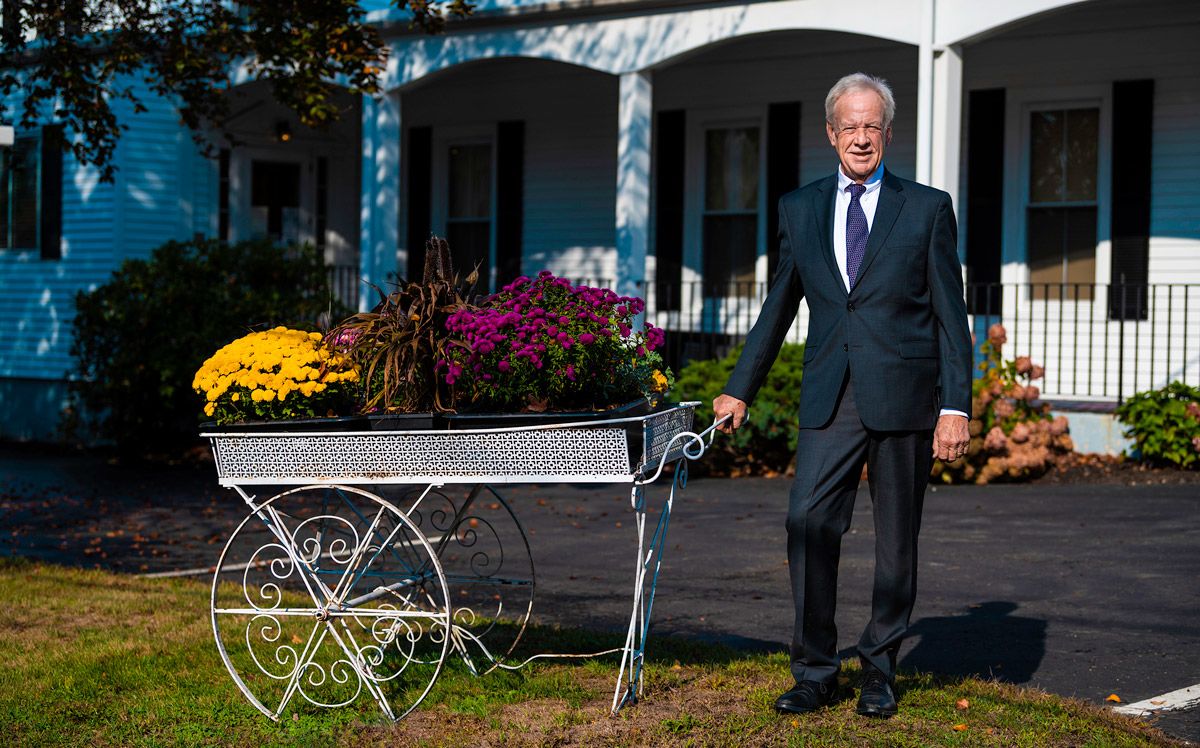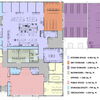Processing Your Payment
Please do not leave this page until complete. This can take a few moments.
- News
-
Editions
View Digital Editions
Biweekly Issues
- December 1, 2025
- Nov. 17, 2025
- November 03, 2025
- October 20, 2025
- October 6, 2025
- September 22, 2025
- + More
Special Editions
- Lists
- Viewpoints
-
Our Events
Event Info
Award Honorees
- Calendar
- Biz Marketplace
On the Record: Jeffrey Hobbs sees new, but different, life in Maine's funeral home industry
 Photo / Jim Neuger
Jeffrey Hobbs is owner and president of Hobbs Funeral Home, outside the original South Portland site where his parents started the business in 1941.
Photo / Jim Neuger
Jeffrey Hobbs is owner and president of Hobbs Funeral Home, outside the original South Portland site where his parents started the business in 1941.
Jeffrey Hobbs is owner and president of Hobbs Funeral Home in South Portland and Scarborough. The 67-year-old, whose parents founded the business in 1941 and held their first funeral on the day Pearl Harbor was bombed, talked to Mainebiz about how the business has adapted during COVID, the industry’s changing workforce and where he stands on retirement.
Mainebiz: How is business right now?
Jeff Hobbs: Our workload, as far as how many families we serve or assist in a year, probably hasn’t changed much, but what has changed is how we’re doing things. For quite some time, we could only have five people here, so I don’t see as many families now as I used to because it’s time for the younger people to see them. I had planned on being around for virtually every funeral, but I couldn’t come to most funerals because I affected the [gathering limit] numbers.
MB: How are services different during COVID?
JH: We have to have smaller groups, and most of the funerals we have had up until the last two or three weeks have been by invitation. We’ve had funerals that would have had hundreds of people, and now have 20. I guess we’re all getting somewhat used to it. As an industry, we’re trying to go with the punches, obey the law and try to think beyond the box. The tent we’ve added is one example.
MB: What has changed the most for you as a funeral director?
JH: Our life day-to-day has changed in what we do during the day, but the fact is that we’re on call 24 hours a day, 365 days a year. I used to say we’re similar to L.L.Bean in that we never close our doors, but L.L.Bean actually had to close its doors during this thing and we didn’t. Our phones and our doors have been open since 1941 continuously.
MB: How do you manage the stresses and emotions of the job?
JH: You have to compartmentalize your life to a degree. I have three children and I can work all day long and have had a terrible day as far as my emotions go — the horrible things you see — but you come home and your children don’t understand that, so you put on a different face. We don’t live in the funeral home, but when I was a little boy we did. I always saw my father in a suit, and when he went to certain parts of the building, work was going on there so you knew you couldn’t go there. As any funeral director’s kid that grew up in the business knew, there were two phones in the house, and when the office phone rang, you had to be quiet no matter what you were doing.
MB: Do you have a retirement or business succession plan?
JH: I find that funeral directors don’t ever really retire. I enjoy doing what I do, and I enjoy seeing the families. I don’t work in the business the way I used to, but I still like to be here for as many funerals as I can. I also love South Portland and I love Scarborough, too.
MB: Is the hope that your son and nephew will take over some day?
JH: I consider my son and my nephew to be the ones to really run the business now. I’m here to settle any disputes, and I enjoy coming to work. I don’t know what I would do if I didn’t have work to come to every day. It’s not that I don’t like being at home, but I like being out in the world.
MB: You also employ two female funeral directors. Do you find that more women are entering the profession?
JH: In the state of Maine, there are more women coming into the funeral business every year. A great number of medical examiners are also women, and a great number of clergy of all faiths except Catholic are women. They’re in many parts of my life now where they weren’t before, and I think it’s great.
Mainebiz web partners

The Giving Guide
The Giving Guide helps nonprofits have the opportunity to showcase and differentiate their organizations so that businesses better understand how they can contribute to a nonprofit’s mission and work.
Learn More
Work for ME
Work for ME is a workforce development tool to help Maine’s employers target Maine’s emerging workforce. Work for ME highlights each industry, its impact on Maine’s economy, the jobs available to entry-level workers, the training and education needed to get a career started.
Learn More
Groundbreaking Maine
Whether you’re a developer, financer, architect, or industry enthusiast, Groundbreaking Maine is crafted to be your go-to source for valuable insights in Maine’s real estate and construction community.
Learn more-
The Giving Guide
The Giving Guide helps nonprofits have the opportunity to showcase and differentiate their organizations so that businesses better understand how they can contribute to a nonprofit’s mission and work.
-
Work for ME
Work for ME is a workforce development tool to help Maine’s employers target Maine’s emerging workforce. Work for ME highlights each industry, its impact on Maine’s economy, the jobs available to entry-level workers, the training and education needed to get a career started.
-
Groundbreaking Maine
Whether you’re a developer, financer, architect, or industry enthusiast, Groundbreaking Maine is crafted to be your go-to source for valuable insights in Maine’s real estate and construction community.
ABOUT
NEW ENGLAND BUSINESS MEDIA SITES
No articles left
Get access now
In order to use this feature, we need some information from you. You can also login or register for a free account.
By clicking submit you are agreeing to our cookie usage and Privacy Policy
Already have an account? Login
Already have an account? Login
Want to create an account? Register
Get access now
In order to use this feature, we need some information from you. You can also login or register for a free account.
By clicking submit you are agreeing to our cookie usage and Privacy Policy
Already have an account? Login
Already have an account? Login
Want to create an account? Register







0 Comments